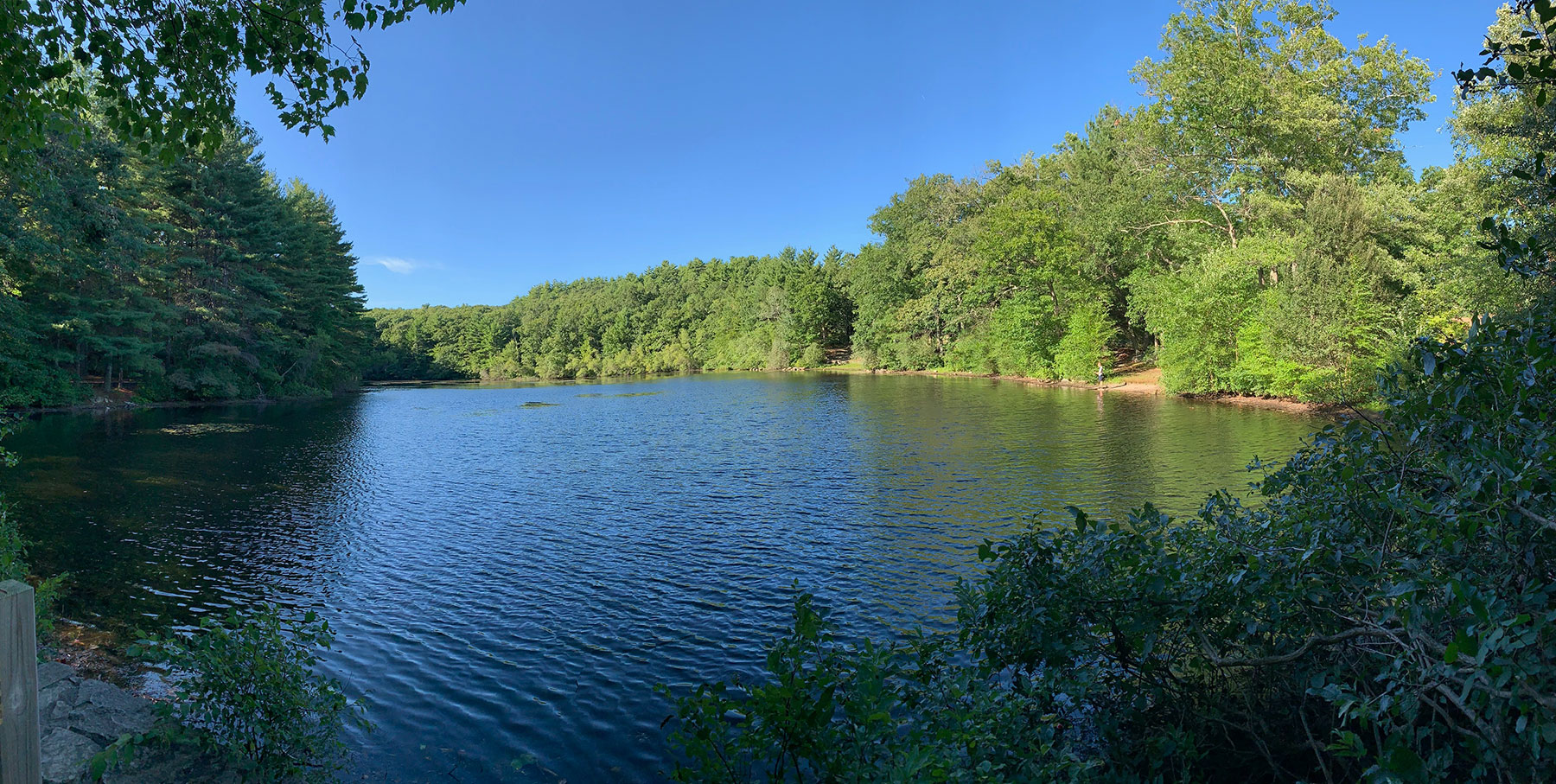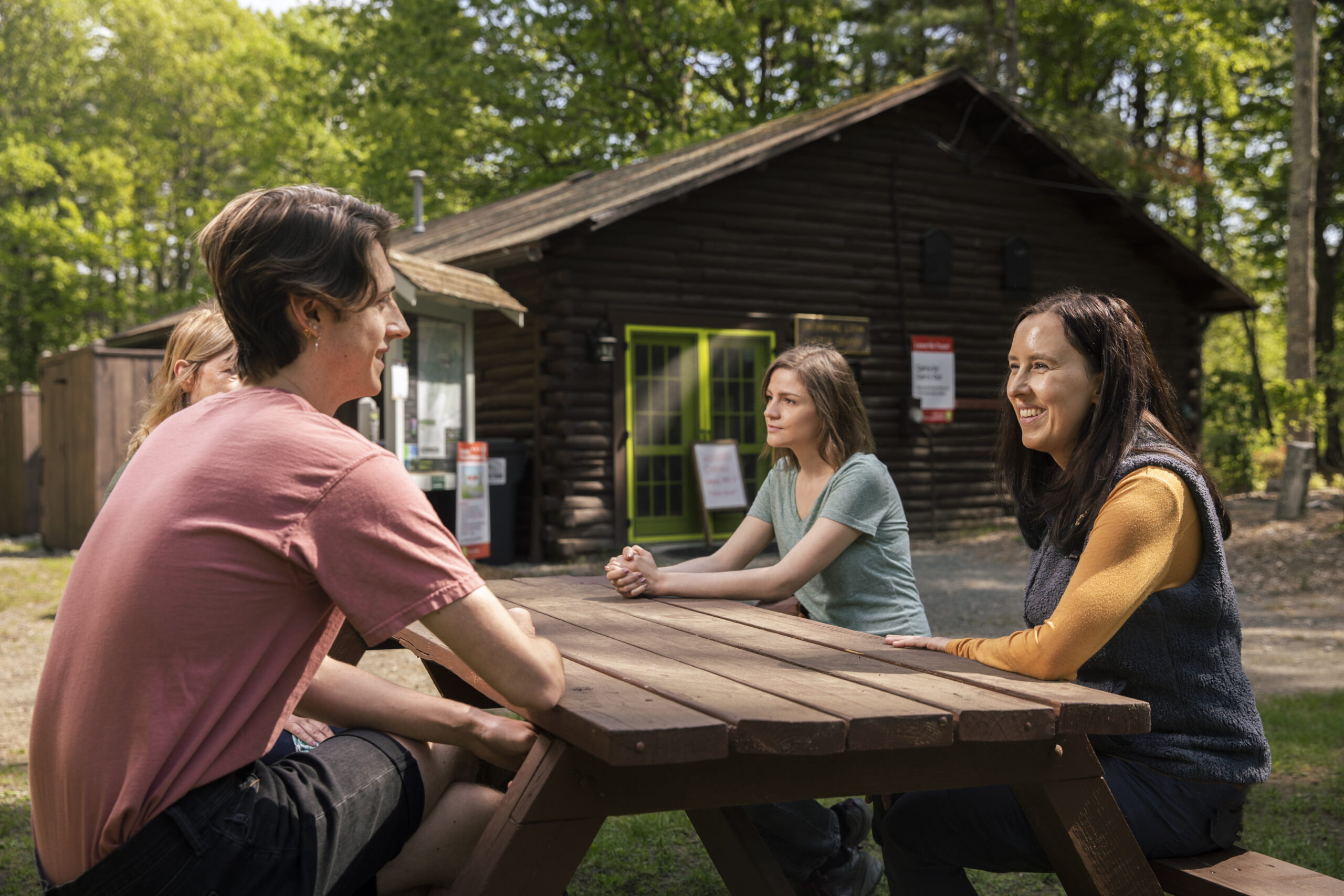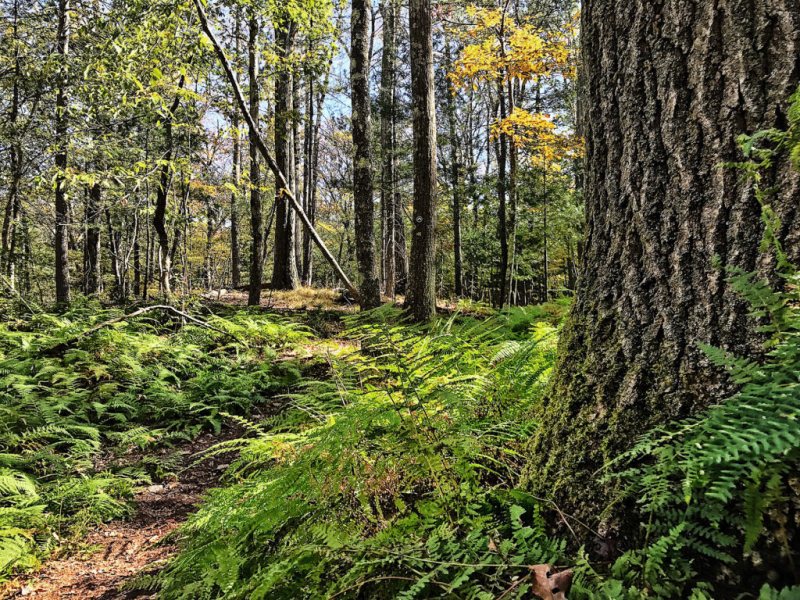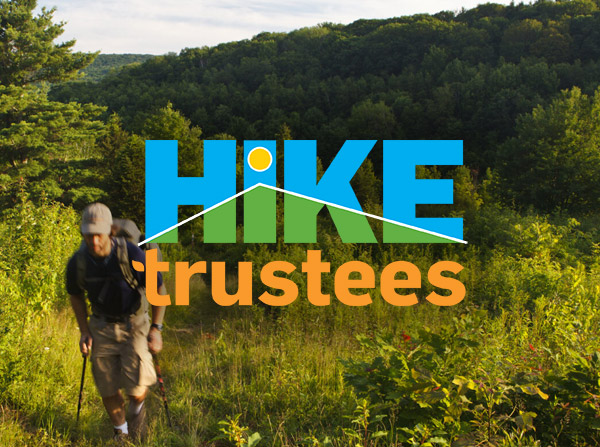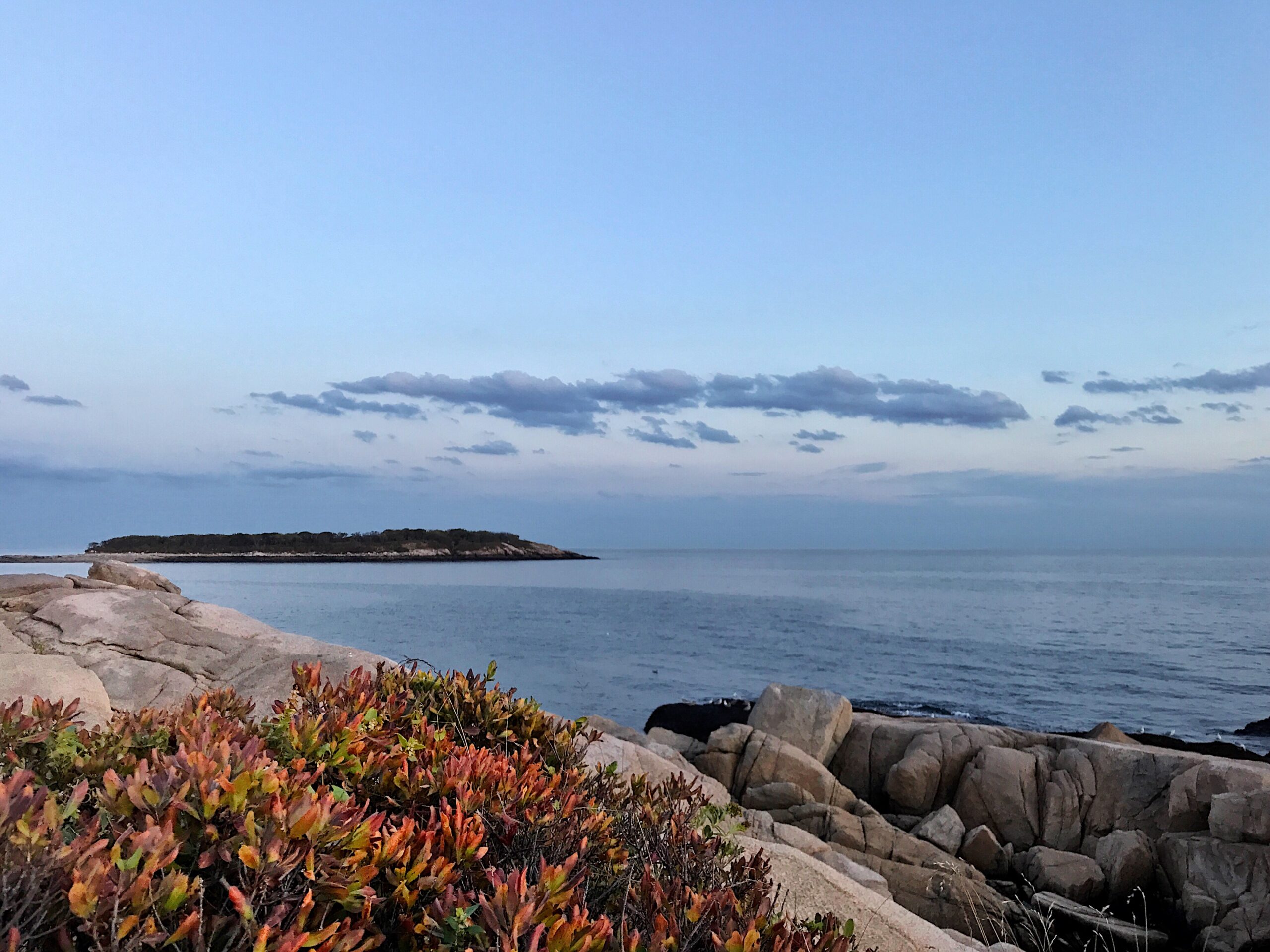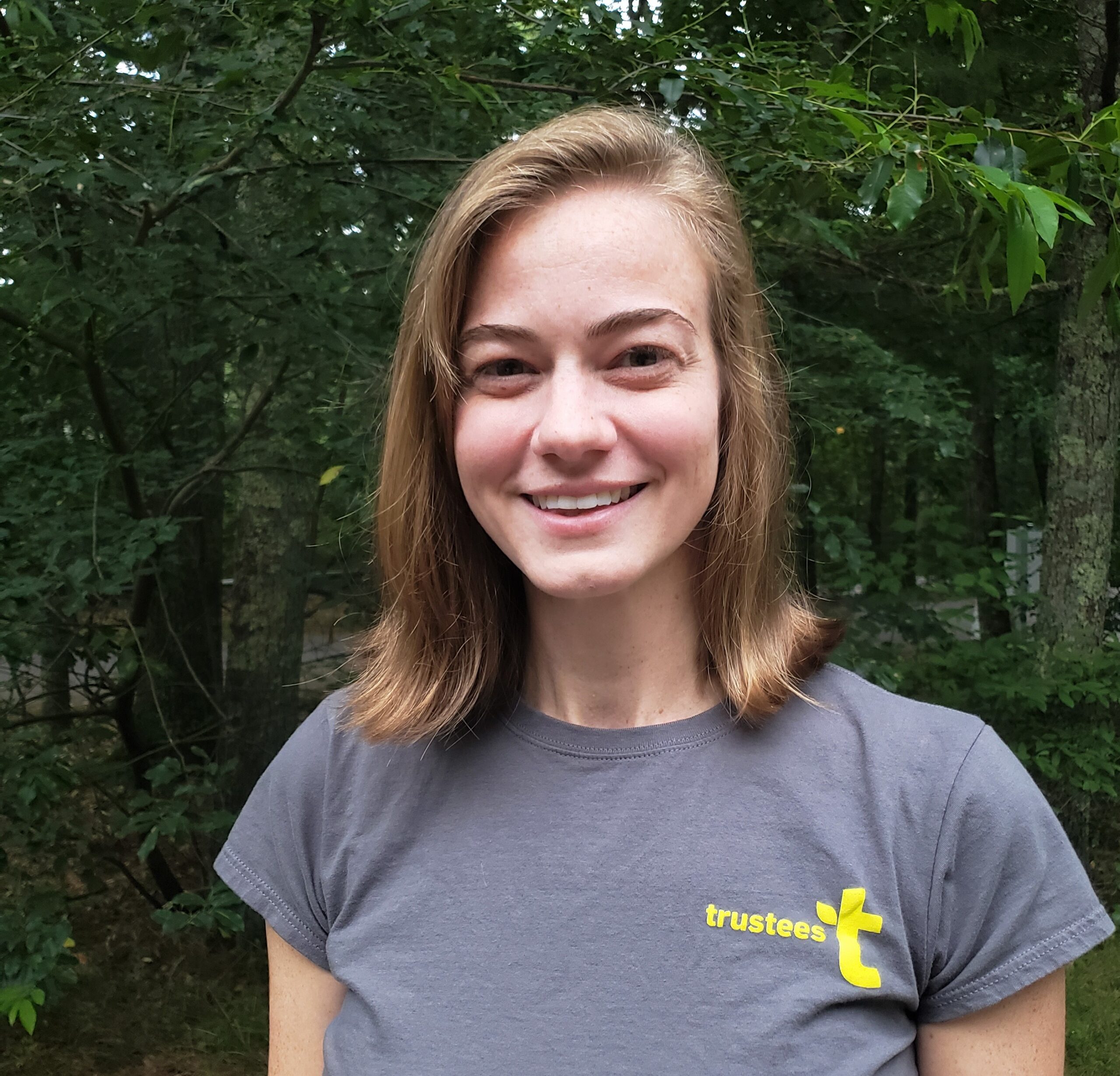Meet Jen Klein, The Trustees’ first-ever Director of Outdoor Experience. By designing exciting educational programs and experiences, Jen is helping new audiences build a lifelong love of the world outside.
Q: What formative experiences in the outdoors led you where you are today?
A: Growing up in Detroit, I’d spend summers at my grandmother’s house in the city. She started a community garden back in the 70s, and I would spend hours a day in that garden learning about life cycles of plants and how composting works, watching birds and squirrels, finding worms and bugs—that sticks with me to this day. I think that’s why I’m especially passionate about how we connect urban audiences to nature: so many people, like me, didn’t grow up on a farm or have many acres in our backyard.
Q: How did you first discover The Trustees?
A: When my husband and I moved to New England from metro Detroit 13 years ago, the first places we visited were Copicut Woods, Rocky Narrows, and Cormier Woods. What initially drew us to Trustees properties was our dog. We were looking for places to hike where our dog was welcome—now we have two, both vizslas. When I joined The Trustees last year, I spent three months visiting as many properties as I could: 60 in 90 days.
Q: What does the role of Director of Outdoor Experience entail, and what projects do you have in the works?
A: I oversee all things related to engaging people outdoors on our properties. Even Trustees museums and cultural and historic sites—places you might not think of as “nature properties”—still have an outdoor component to them, like a walking path or a hiking trail. I’ve been thinking about what other opportunities we can offer and building infrastructure to make them a reality. This summer, we launched Outdoor Adventures, a roving hiking program where outdoor educators lead guided hikes at reservations that might not be as well known as our more traditionally programmed properties. We’re starting those hikes in the Charles River Valley, South Shore, and South Coast regions. I’m also thinking about more ways that we can bring the Trustees experience to communities and audiences that we do not currently serve, and to meet people where they are.
Q: Tell us about a longer-term project: the nature and adventure play spaces.
A: By summer 2022, we’re hoping to open a flagship nature and adventure play space. It’s not a traditional playground: it blends into the landscape and mimics the natural environment, inviting kids to have open-ended and unstructured play, and use their imaginations in ways they might have naturally done 40 years ago. It might include intentionally placed logs for kids to climb, bridges, a tree swing—what it looks like will depend on the property and its existing landscape. During the pandemic we’ve seen more people on our properties than ever before, a lot of them are new to nature, and a lot of families don’t necessarily feel safe letting their kids wander or play in the woods. These nature play and adventure spaces represent a stepping stone: structured, safe environments where parents don’t feel like their kids are going to get covered in poison ivy, yet kids can feel a sense of adventure and risk—which is critical for their growth and development— and experience magical moments that help create a sense of identity with nature.
Q: You mentioned people rediscovering the outdoors or connecting with nature for the first time. How do you think about sustaining this present moment over the long run?
A: My ultimate goal—and a goal of The Trustees—is to build an ecologically literate population. I spent five years working as an educator in a public school system, and I don’t see nature and education as separate: nature needs to be a part of everything we do. We’re at a juncture in history where issues like climate change and losses in biodiversity have coincided with people becoming more disconnected from nature, and we have an opportunity to reach new people and hold on to them by creating fun, positive experiences that they’ll want to come back to again and again. Then it becomes a habit of mind, where you help people develop how they see themselves in relation to the landscape, and then we can imagine a future with a regional, national, and global populace that’s connected to and civically engaged around nature. I’m so proud to work for an organization that’s committed to having that impact.
